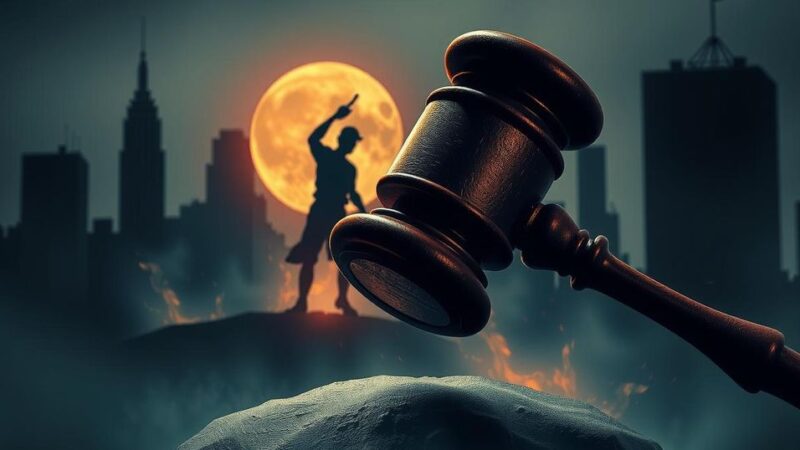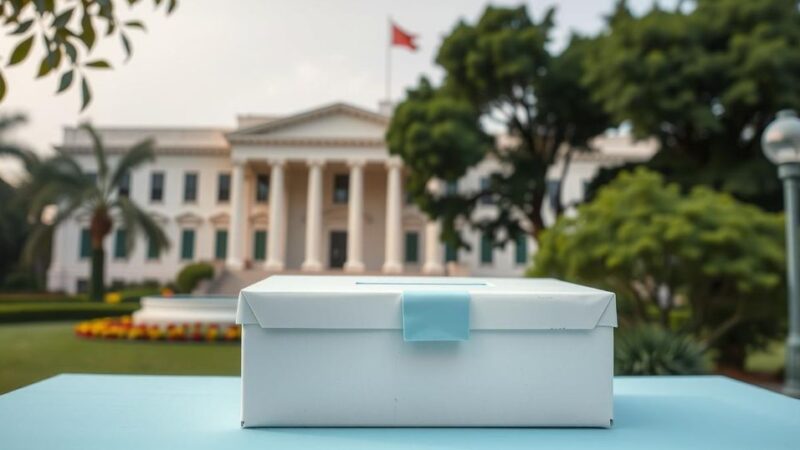President Daniel Noboa is campaigning for re-election amid high crime and public discontent in Ecuador. Despite challenges, including violent crime and an electricity crisis, Noboa maintains a solid approval rating, in part due to his assertive approach to security. His presidency is marked by political upheaval and ongoing controversies surrounding civil rights and governance. The upcoming election will test his ability to sustain support and navigate significant national issues.
Amid Ecuador’s challenges, such as daily blackouts and rampant crime, President Daniel Noboa pursues re-election with notable public support. His presidency has faced unprecedented issues including violent prison riots and diplomatic tensions with Mexico, yet his approval ratings remain above 50 percent. Noboa’s tough stance on crime, characterized as “mano dura,” has been a central focus, rallying support even as criticisms regarding his handling of human rights arise.
Noboa’s ascent to the presidency followed a unique political upheaval wherein his predecessor dissolved the government to avoid impeachment. This unexpected vacancy allowed Noboa to successfully campaign for the remaining 18 months of the former administration, becoming the youngest elected president in Ecuador. However, experts contend that his inexperience has hindered effective governance.
The President’s management style has drawn scrutiny, particularly regarding the electricity crisis when blackouts plagued the nation for months, despite his assurances to quell the situation. Public frustration culminated in protests demanding his resignation, showcasing a decline in citizen trust as crime surged, culminating in Ecuador’s highest homicide rates in decades.
Noboa’s tough-on-crime rhetoric escalated following notable incidents such as the assassination of fellow candidate Fernando Villavicencio and a violent raid on a television station, both of which elicited public outrage. This climate of fear allowed Noboa to adopt a militarized approach against gangs, yet questions linger about the devastating impact on human rights under his policies as violence persists.
The President has faced significant challenges with both violent crime rates remaining high and allegations of rights violations against law enforcement. His controversial decision to raid a Mexican embassy led to severed diplomatic ties and further fueled concerns regarding his authoritarian tendencies, which include attempts to bypass constitutional protocols during his campaign.
As Noboa seeks a second term, he projects a message of transforming Ecuadorian politics while cultivating a youthful following amidst criticisms of previous governance. Yet, the challenges he faces will test his popularity; if he fails to address them, his approval may wane significantly. The upcoming elections and voter sentiment suggest that while his youthfulness appeals to many, tangible results are crucial for sustained support.
Ecuador is currently grappling with a multifaceted crisis involving high crime rates, economic challenges, and political instability. President Daniel Noboa’s leadership has been marked by significant events, including power outages and violence that have evoked public dissatisfaction. As he seeks re-election, public perception plays a crucial role, influenced by his approach to national security and governance. Understanding these dynamics provides insight into the upcoming electoral landscape and the President’s strategies to maintain his popularity within an evolving political climate.
In summary, President Daniel Noboa faces the critical challenge of re-election amidst rising crime and political unrest in Ecuador. His administration’s policies, particularly the tough-on-crime stance, have garnered public support but also raised serious concerns about human rights violations and governance. As the election approaches, Noboa’s ability to gain voter confidence will depend on effectively addressing Ecuador’s pressing issues while managing the ramifications of his leadership style.
Original Source: www.aljazeera.com






